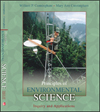 |
1 |  | 
Which of the following is NOT one of the four basic tenets of the precautionary principle? |
|  | A) | decisions must be open, informed, and democratic |
|  | B) | proof of carelessness lies with the proponents not the general public |
|  | C) | arbitration is required for dispute resolution |
|  | D) | none of the above |
 |
 |
2 |  | 
Reading books like My First Summer in the Sierra by John Muir, is an example of |
|  | A) | environmental literacy. |
|  | B) | reasoned justice. |
|  | C) | adaptive management. |
|  | D) | citizen science. |
 |
 |
3 |  | 
Choose the correct sequence of events which occurs in the policy cycle. |
|  | A) | identify problem, evaluate results, enact law |
|  | B) | set agenda, suggest changes, enact law |
|  | C) | identify problem, set agenda, enact law |
|  | D) | suggest change, enact law, set agenda |
 |
 |
4 |  | 
When a federal agency develops administrative standards it is participating in a process called |
|  | A) | case law |
|  | B) | arbitration |
|  | C) | lobbying |
|  | D) | agency rule-making |
 |
 |
5 |  | 
The primary purpose of the Atlantic Coastal Action Programme in eastern Canada is to |
|  | A) | stop clear cutting of old-growth forest. |
|  | B) | develop blueprints for restoration of environmentally degraded harbors. |
|  | C) | to buy land to protect it from misuse and development. |
|  | D) | all of the above. |
 |
 |
6 |  | 
Nongovernmental organizations |
|  | A) | work for social change. |
|  | B) | have become a powerful aspect of environmental protection. |
|  | C) | are located primarily in more highly developed nations. |
|  | D) | all of the above |
|  | E) | b and c are correct. |
 |



 2002 McGraw-Hill Higher Education
2002 McGraw-Hill Higher Education